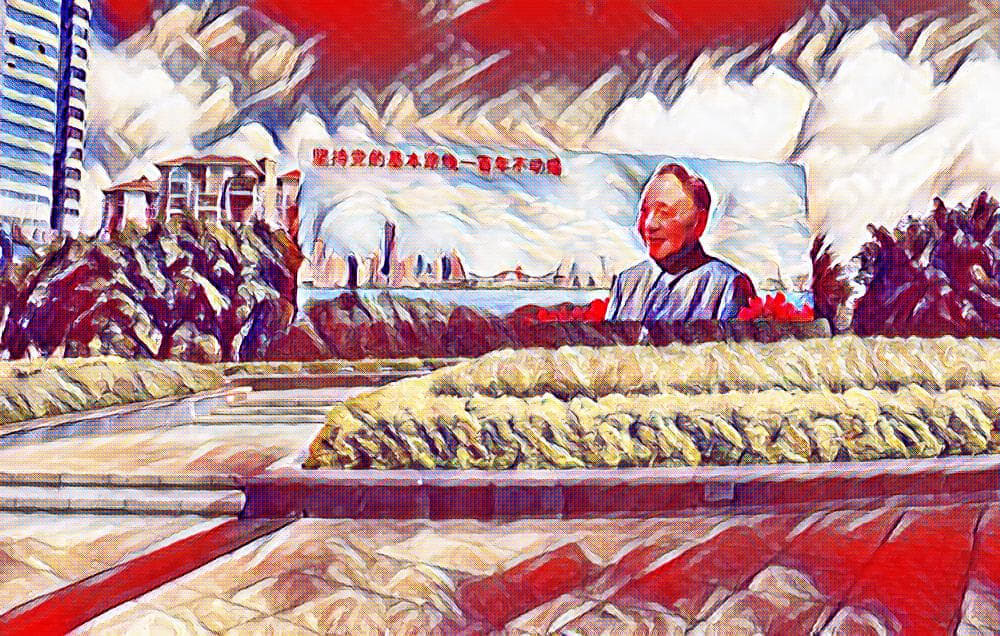The Soviet Union abruptly disappeared, while Red China survived Mao’s death—even better, it revived its former power. Why? In one case, the state dissolved; in the other, it held on. China specialist Agnès Valloire brilliantly traces the history of this transition in Pourquoi la Chine? Politique naturelle en Chine rouge (Why China? Why China? Natural Politics in Red China).

Why didn’t Maoist China collapse at the end of the 1980s, like the USSR, during the Tiananmen events? One can guess what would have happened: the country would have been sold off to Western multinationals; Taiwan and Hong Kong would have gained their independence, as well as other regions, such as Xinjiang or Tibet; chaos would have reigned as in post-Soviet Russia. None of this happened. Agnès Valloire’s book, which helps us to understand why, is indispensable in shedding light on the period leading from the end of Maoism to the current presidency of Xi Jinping.
First of all, the book takes stock of what the events of Tiananmen in 1989 were: an attempt at a “colored revolution” under American influence, whose account of the course and massacres has very often been distorted by Western propaganda (there were many deaths, but not necessarily in Tiananmen Square itself). One cannot understand contemporary China if one does not understand why the destabilization maneuver failed—and why China, despite its opening up since the late 1970s, is simply not in the process of Westernization or Americanization. The explanation lies in both the context and the people.
Deng Xiaoping and Confucius
In terms of people, the book paints a glowing portrait of Deng Xiaoping, and can even be read as a brief biography of this man who is fascinating in many ways: having participated in the Long March alongside Mao, he was quick to criticize the excesses of Maoism and its consequences for the people. Imbued with the Confucian legacy, he favored the testing the veracity of abstract ideals. Relegated to a tractor store because of his differences with Mao, he came back into power after Mao’s death, and transformed the country in depth. Eighty-five years old at the time of the Tiananmen events and removed from his most important functions, he immediately understood the role played by the United States and ordered a martial response, not out of sheer tyranny, but because he understood that it was the very existence of the state that was at stake. On this point, the book is very profound—the great difference between the fate of the USSR and that of China at the end of the 1980s lies precisely in the dissolution of the state in one case, in its maintenance in the other. Deng Xiaoping’s intelligence was to understand that had the Communist Party been abandoned after Mao, the state would have collapsed into chaos. By transforming the party from within, to advance socialism in a “Chinese way,” none of this happened.
In the background, Agnès Valloire also shows that such continuity is due to the specificities of the Chinese context. It is a truism to say that China is perhaps the state in the world which, despite numerous dynastic discontinuities, has the longest existence in history. The weight of Confucianism is also important, in that it allows us to value long term equilibrium, and proposes a hierarchical vision of the world, thought of as a series of families, from the small family (which is the foundation of society, in place of the individual) to the large family that is the people.
Although very critical, and rightly so, of Mao, the book shows that he never totally broke with some of these principles, which allowed for a renewal after his death. Xi Jinping is still building on these foundations, which ensure the continuity of the state.
Let us simply express a small reservation—on several occasions, the book intends to show that the Chinese civilizational edifice conforms to the political visions of Bonald, Maistre or Maurras. This is a bit artificial, but it does not detract from the reading of the book and all that can be learned from it.
Guillaume Travers is part of Champs communs, a reterritorialization think tank.
